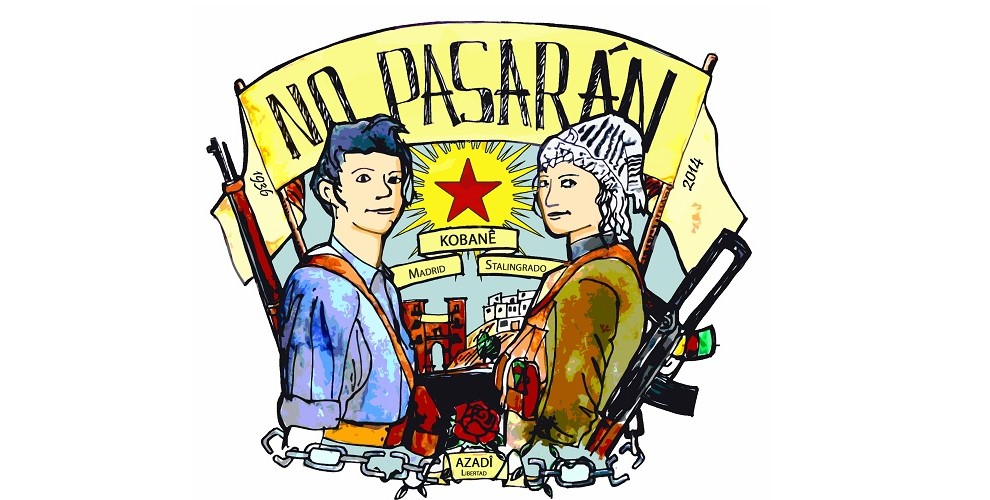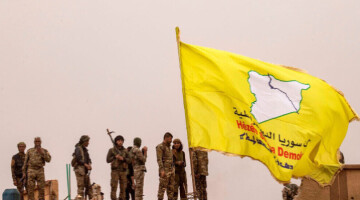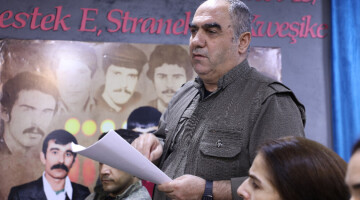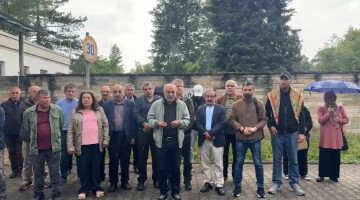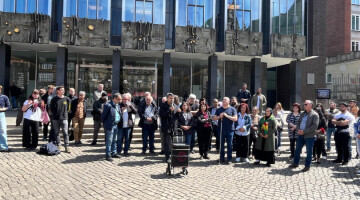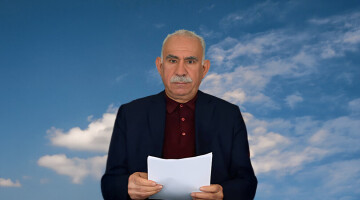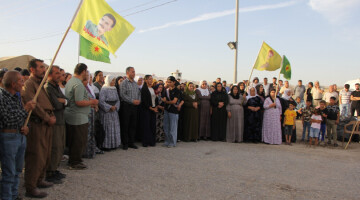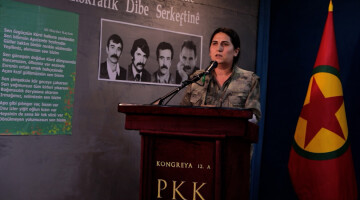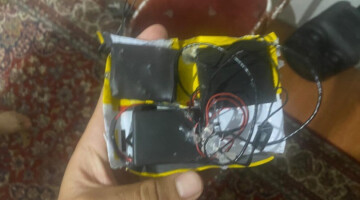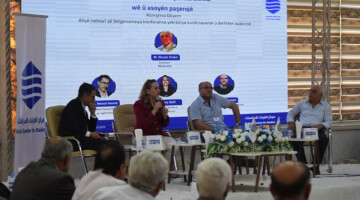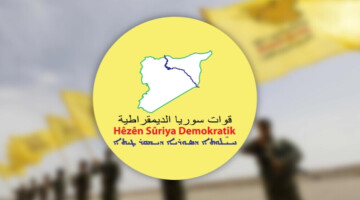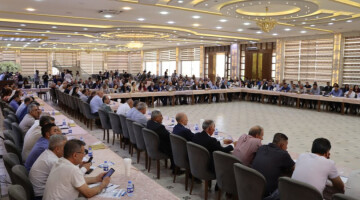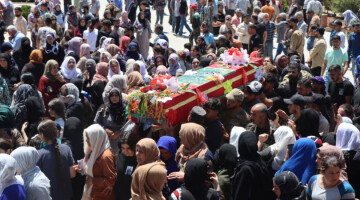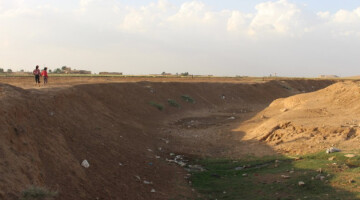Kobanê Co-mayor Mustafa Abdi was invited to the international conference the “Union of Municipalities for World Peace” is holding in Nagasaki, Japan. Abdi spoke to our agency about how Kobanê was rebuilt after being saved from ISIS and stated that in order to rebuild life in a city just out of war, they are planning a restructuring of everything from health to food, from ecology to education.
“For me, the Rojava Revolution started in Kobanê and we want to build the best new life for this city of the revolution,” said Abdi and answered our questions on the details of the restructuring project.
What were the first things you did in the name of the restructuring of Kobanê?
Right after Kobanê was saved from ISIS, we met with the residents and formed our commissions and committees. We held many meetings on how to build the new life. Of course we first held memorial services for our martyrs.
We formed six committees in the system we devised. First, we formed the “Damage Assessment Commission”. Then we formed the commissions to work on education, health and social life. These committees all assessed the damage in the city in their area and planned how to rebuild.
The first job for the committees formed by our municipality was truly difficult. The first decision we made was to bury the ISIS bodies still in the debris of the buildings and the city and clear the rubble from the streets.
Are there institutions or organizations that help you in these efforts?
The infrastructure had been destroyed in Kobanê. We needed help with the roads, the infrastructure, power, and many other issues. So we requested help from the Canton administration.
But first I’d like to say that the people of Northern Kurdistan truly became a beacon of hope for us. Northern Kurdistan helped Kobanê immensely. I truly thank our people. The people sent construction equipment, engineers, food, medicine and everything else. Northern Kurdistan provided this aid in a planned and organized manner.
There must have been hardships in these efforts. Can you tell us about that?
It’s certainly not easy to rebuild life in a city just out of a war. First, we built bakeries for bread for the people. All the aid for food came from Northern Kurdistan. Our first order of business was to provide vital needs.
There were 19 schools in our city before ISIS, but all of them were destroyed. Our education committee determined the needs in the education area and prepared a list, from educational tools to school buildings. We first built three schools as per the list, and now we have nine schools serving our children. There are some 10.000 students registered with the education committee now.
Before the ISIS attack, there were four hospitals in Kobanê, but two of them were completely destroyed in the war, and the other two were damaged. We first repaired one building, then we opened the other one again. Our third hospital was built by the Heyva Sor a Kurdistanê.
There are many things our hospitals lack. First, there are insufficiencies in tools and human resources for neurology and cardiology surgeries. Even though psychological traumas are widespread after wars, we don’t have professional psychologists to help the people in this area.
What have you done as part of the rebuilding efforts?
Almost all roads were destroyed in the war. We made our plans and projects for new roads. Almost all of them are completed. Asphalt laying continues in many roads now. We have resolved the local and intercity transportation issue, for the most part, there are no glaring issues. In the future we will work on determining our needs again, considering more people will come to our city.
What do you think the restructuring project lacks, do you see anything missing?
Of course, we lack a lot of things. We want to create a special education institute for our children, where they can receive psychological help, with dormitories, and where they can continue their education. But we don’t have enough resources. I want to call on our patriotic people to help us in this matter.
We founded an institution to create aid for the relatives and families of our people martyred in the war. With help from the people, we support the martyrs’ families to the best of our ability. We fulfill many of their needs. Most importantly, our institutions help the orphaned children to build their lives and futures again.
Do you have future projects?
Our most important future project is the new Kobanê project. We started this, we are building a new city, but it’s not just building buildings. This city will be built according to our paradigm. We are planning a completely ecological city. Every aspect will be planned for the happiness of our people, the city will make life easier in all aspects for our people, and we will build an exemplary city.
One of our future projects is a large scale central university in Kobanê. We don’t have a relationship with the universities of the Regime. The planned University will be able to teach in all areas and will be a central university for Rojava. We have determined suitable areas for the educational institutions and I’m hoping to start the efforts in a few years. These projects may increase with incoming aid, and that way Rojava and Kobanê will get rid of a serious insufficiency. If we can’t fulfill the needs of our people swiftly and correctly, there could be more migration. We want our people to live in their cities and villages, with all their needs met.
I believe you also have some efforts in place for a museum. Can you tell us about that?
We planned part of Kobanê demolished after the war as a museum grounds, to forever remember the resistance against darkness. We are turning the area most devastated by the war into a museum. The struggle of Kobanê was won despite many hardships, and we want the future generations to always remember this struggle. People going through the museum grounds will learn everything about the war and the struggle through paintings, photographs and videos. We are planning a building right next to the museum for activities like seminars and conferences.
You were elected as an official member of the “Union of Municipalities for World Peace” based in Japan. Can you talk a little about this development?
We were invited to a conference that brings municipalities from around the world by peace, held in the memory of the people killed in the bombings of Nagasaki and Hiroshima in Japan 72 years ago. Our friends who live in Japan helped us a lot through diplomatic efforts for this. We believe participation in such activities and membership to unions is very important. It is a happy occasion that our city is talked about in Asia. There was a lot of discussion on what should be done for peace in the conference. I see it as a new area of experience. Many mayors from Europe and Africa came to us and offered their respects for our struggle against ISIS. We signed sister city protocols with several cities. We will first be signing a protocol with Halabja, then we will spread these activities among municipalities that need peace like us, to enforce fraternity and create awareness for world peace.
What are your fundamental needs for the restructuring project? Are you calling for help for these needs?
Our most fundamental need is surgical equipment. We especially need equipment for open heart surgeries. We have to send the patients to Damascus or other countries now. We need a lot of help in this area. Another issue is that we lack orthopedic equipment. We don’t have anything in some departments. We need a lot of wheelchairs now, there is a need for wheelchairs and prosthetics for our veterans.
Our municipality has very few construction equipment and there are delays in services. We try to serve every part of the city, but there are still hardships. We need road making equipment, garbage trucks, street cleaning equipment...everything to run a city, in short, we need. The equipment we do have is insufficient.
As you know, the war is not over yet and our needs continue in many areas. People from other provinces come to Kobanê, and the population is rapidly growing. In relation to that, of course, we need support from both the peoples of Kurdistan and the international community. We need support in food and health areas, and in other areas as well.
Another pressing issue is the lack of water. Almost all the population in Kobanê is engaged in agriculture, and all the lands are suitable for it. Irrigation canals are a priority project. Irrigated farming in Kobanê will offer great support throughout Rojava regarding food. If the Kobanê fields get water, I believe Kobanê can fulfill the agricultural needs of all of Rojava.
Lastly, I would like to state that Kobanê is a symbol for the Rojava Revolution, and a city of ours that has produced a heroic epic. For me, the Rojava Revolution started in Kobanê, and we want to create the best new life for this city of the revolution.

